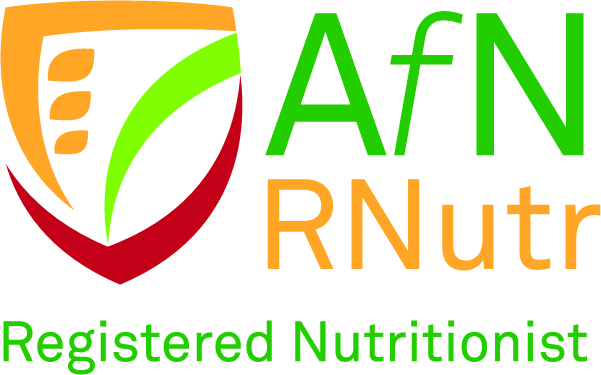A Nutritionist’s Guide to Calories
Calories often take the spotlight when it comes to nutrition, but are they really that important? In this guide, I’ll be answering some of my most asked questions about calories, including how many we need and whether we should be counting them.
What Is a Calorie?
A ‘calorie’ is simply a unit of energy. It is the amount of heat (or energy) needed to raise the temperature of 1 gram of water by 1 degree Celsius.
We use the term ‘calorie’ to talk about the amount of energy present in an item of food or drink. In the UK, calories are given as kilocalories (kcal) on food and drink labels.
Macronutrients contain different amounts of calories per gram:
- Carbohydrates: 4kcal per gram
- Protein: 4kcal per gram
- Fat: 9kcal per gram
- Alcohol: 7kcal per gram

How Many Calories Do We Need?
Without energy, our bodies wouldn’t be able to function, so it’s important that we eat the right amount of calories every day.
General nutrition guidelines state that the average man needs around 2,500kcal and the average woman needs around 2000kcal every day to maintain a healthy weight and function normally.
However, this is not necessarily the number of calories YOU will need in a day. There are many factors that influence the amount of energy an individual person needs to function normally. These energy requirements can also fluctuate day-to-day and throughout our lifetime. So there’s no one-size-fits-all amount of calories that will work for everyone.
Some of the factors that influence our energy requirements include:
- Age (our metabolism can slow as we age)
- Sex (men typically have a higher metabolic rate*)
- Body weight (larger bodies have more cells – increasing energy needs)
- Genetics (things like metabolic rate* can be determined by genetics)
- Physical activity levels (movement in any form requires energy)
- Illness (being ill can increase energy requirements slightly)
- Body composition (muscle cells require more energy than fat cells)
*Metabolic rate: The amount of energy used over a period of time to carry out all the processes in our body to keep us alive.
Calories and Energy Balance
Being in an ‘energy balance’ means that we consume the same amount of calories as we expend through metabolic processes and physical activity.
Consuming more energy than we expend can result in weight gain, as this extra energy is stored as fat. Whereas, consuming less energy than we expend can result in weight loss, as this deficit of calories results in our body breaking down our fat stores to meet our energy needs.
If your goal is to gain weight, you will need to consume more energy than you expend, and if you want to lose weight, you will need to consume less energy than you expend.
This might sound easy in theory, but as always, nutrition and behaviour change aren’t as simple as ‘eating less and moving more’ (or vice versa).
It’s also important to be aware that undergoing drastic dietary changes (like crash dieting) could cause unpleasant side effects and will be difficult to stick with in the long term.
As a rule of thumb, to lose weight sustainably without going on extreme crash diets, a 500-calorie deficit is generally recommended. However, if you’re struggling to lose weight or find a way of eating that suits you, please seek support from a Registered Dietitian or Registered Nutritionist.

Should You Count Calories?
This is a question that gets asked a lot, but like anything, there are pros and cons to calorie counting.
If you are thinking about downloading an app to count your calories, take a look at the benefits and downsides below to weigh up if it’s really worth your time.
Potential Benefits of Counting Calories
Calorie counting is a tool used in weight management and it can work well for some people, especially in the early stages.
It can help you lose weight
Calorie counting can support weight loss, especially if you are unsure about how many calories are in the foods you eat. It can provide you with a rough guide as to how many calories you are eating day-to-day, which can help you establish a calorie deficit that is tailored to you.
It can also help you gain weight
On the flip side, calorie counting can help you gain weight, as it can be a useful tool to see if you are eating enough.
However, calorie counting is not essential for weight loss or weight gain. Whilst it might be useful for some people, it can have its downsides.

The Downsides of Counting Calories
Calorie counting might seem harmless, but there are a few reasons why it might not be so helpful.
Calories in food aren’t equal
Some people claim that weight loss is as simple as ‘calories in vs calories out’. Whilst this is true to some extent, we must also consider that we eat food, not calories!
The food we eat must be processed by our bodies to utilise the calories present, however, not all foods have the same caloric availability.
For example, protein has a caloric availability of 70%, which is lower than carbohydrates and fats. This means that out of every 100 kcals of protein that gets digested, only 70 kcals are available to use. This is because our body requires more energy to digest protein compared to carbohydrates and fats.
So, whilst you might think that you are eating X number of calories, your body might only be able to utilise a portion of this.
It might negatively impact your relationship with food
Calorie counting has its place, but if you can’t eat food without worrying about the calorie content, this is probably a sign you need to take a step back.
Trying to stick to a certain number of calories every day can be challenging, especially when the calorie goal is significantly lower than your needs. Some people might feel like a “failure” if they don’t stick to a specific number every day, which can lead to feelings of anxiety around food.
As well as this, long-term calorie counting can disrupt your internal hunger and fullness signals. This could make it harder for you to regulate your food intake when you stop calorie counting.
Calorie counting isn’t 100% accurate
It’s difficult to count the calories we eat with 100% accuracy – even with the best calorie counting apps and high-tech food scales, there is still going to be a margin of error.
The calories you see on packaging are also not 100% accurate and you should expect a variance. Nutrition analysis is not an exact science!
Calorie counting ignores the importance of nutrients
Calories often take centre stage with nutrition, leaving nutrients as an afterthought. Getting a balance of macronutrients (carbohydrates, fat and protein) and enough micronutrients (vitamins and minerals), is vital for our health and wellbeing.
Eating a restricted diet can increase your risk of a nutrient deficiency, so if you are calorie counting, make sure you are getting sufficient nutrients through a varied diet.

Summary
Calories are essential for our health, as they provide us with the energy needed to live and function normally.
Being in an energy balance (consuming the same amount of calories as you expend) will help you sustain a healthy weight. Whereas consuming more calories than we need will result in weight gain, and consuming fewer calories than we need will result in weight loss.
Whilst calorie counting can be a helpful tool for people who want to manage their weight, there is potentially too much emphasis placed on calories within nutrition. It’s also important to remember that a diet lower in calories isn’t automatically healthier, and it’s not essential to eat the same amount of calories every day.
Ensuring we eat a varied and balanced diet, along with being mindful of our own hunger and fullness signals, is likely to bring more health benefits than simply counting the calories you consume.
If you are struggling to achieve an energy balance or you are trying to manage your weight, consider reaching out to a Registered Dietitian or Registered Nutritionist for personalised support.









